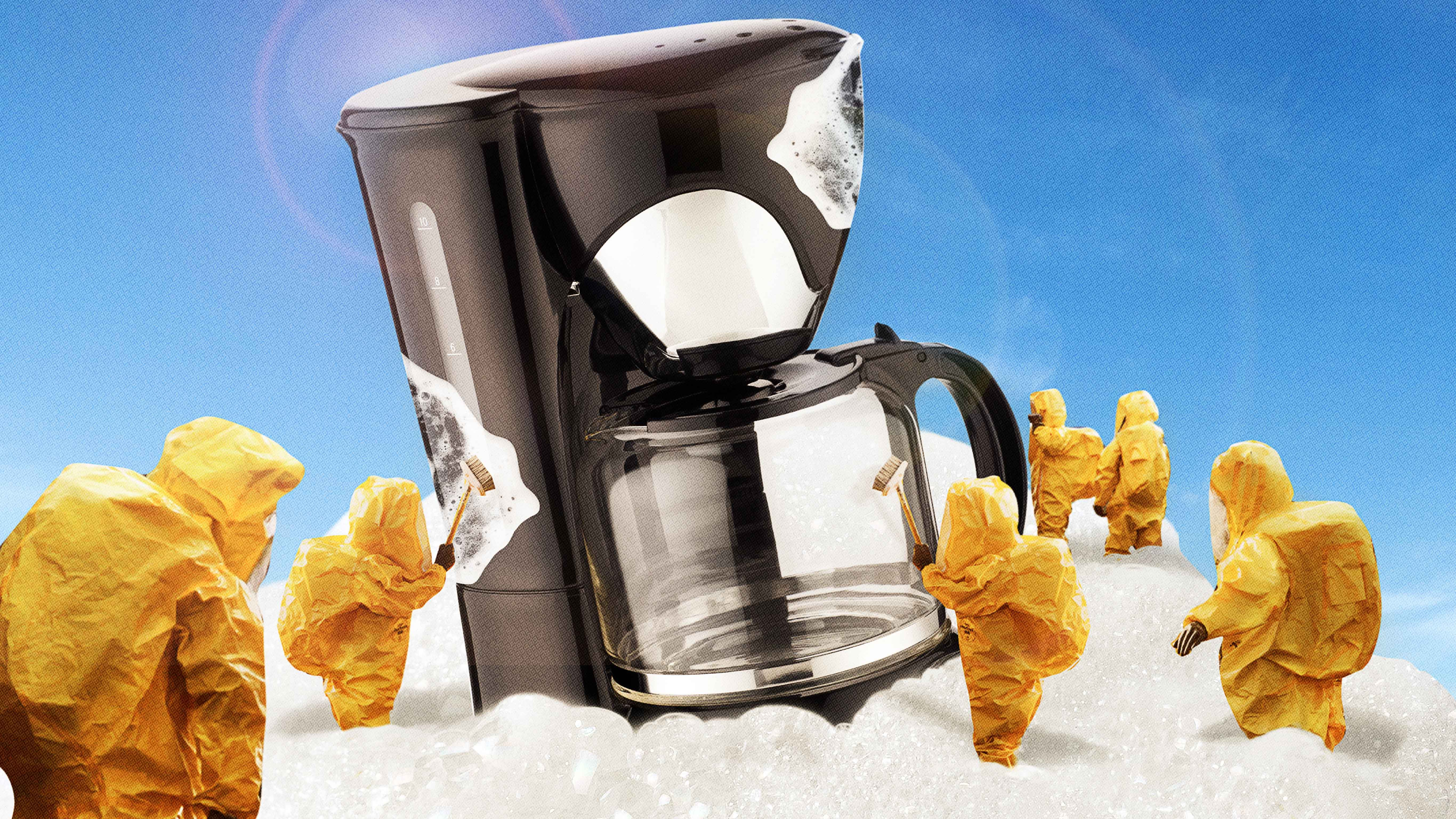How To really Clean Your Drip Coffee Maker
This is not an article to scold you for not deep-cleaning your coffee maker. The headline does not chide you with a "you've been doing it wrong" construction. Hardly any of us are cleaning our drip coffee makers as thoroughly as we should be, and that can shorten the life of our machines and even cause rancid flavors in our coffee.
Your specific machine's user's manual likely has details on this, but who keeps user's manuals? These are the general tips applicable to almost any automatic drip machine.
Wash the basket and carafe with soapy water weekly. The shortcut of rinsing with water on a daily basis still allows coffee beans' oils to build up. "These oils can accumulate on coffee equipment and, though they never spoil and become dangerous, they will create off, rancid flavors in your coffee," Peter Giuliano, chief research officer at the Specialty Coffee Association Of America, tells The Takeout. "Detergents are really effective in cutting coffee oils, and they make some cleaning products especially for coffee, but dish detergent works well too." Soak your carafe and basket in soapy water once a week, then scrub, rinse, and dry.

Don't forget the filter head. This is the area on the machine over the basket where hot water sprays onto the coffee grounds. Most people forget to clean this, Giuliano says, but he suggests wiping that with hot, soapy water once a week, too.
Descale monthly. This is another next-level step most of us neglect, but failing to remove hard-water mineral residue from your coffeemaker can over time clog the tubes running through the flash broilers that power most home machines. If you brew coffee daily, roughly once a month is a good barometer for when to descale; if you don't brew every day, a spokesperson for Mr. Coffee brand machines recommends cleaning them every 40-80 times you brew. People with especially hard water may want to descale even more frequently, and people who have reverse-osmosis water filtration systems might only need to descale once a year.
You can determine your tap water's hardness by checking your municipal water report. "Ideal water hardness is between one and five grains of calcium hardness, in my city, water averages about nine grains of hardness," Giuliano says. (Most cities measure water hardness in water as parts per million of calcium carbonate; to turn this into grains of hardness, divide the ppm figure by 17.1.)
To descale your machine, use a commercial descaling product, or run a solution of two parts water to one part vinegar through your machine on its brewing mode. Make sure to subsequently run a few regular water rinses through the brewing mode afterwards to flush the vinegar out.
If all this sounds like a lot of cleaning work, hey, there are always pour-overs.
